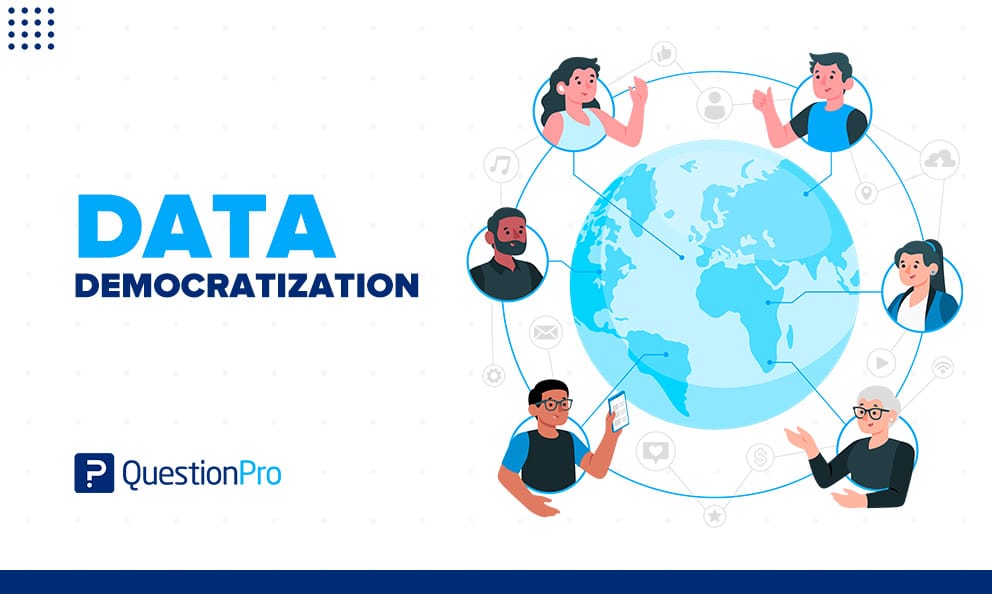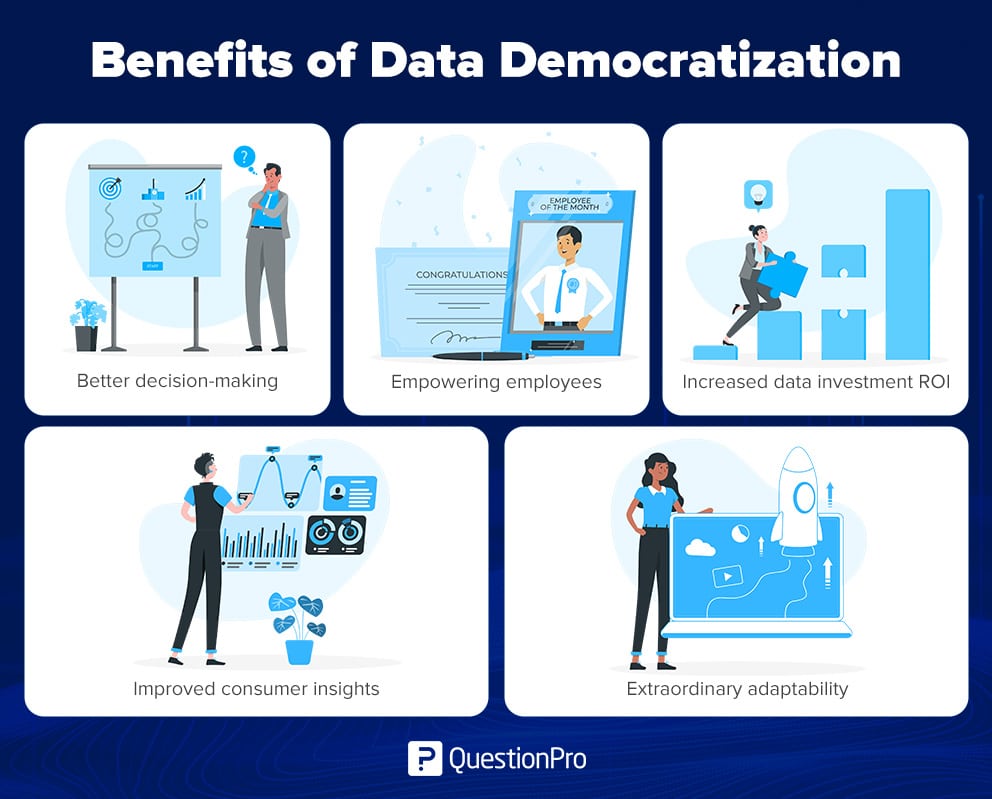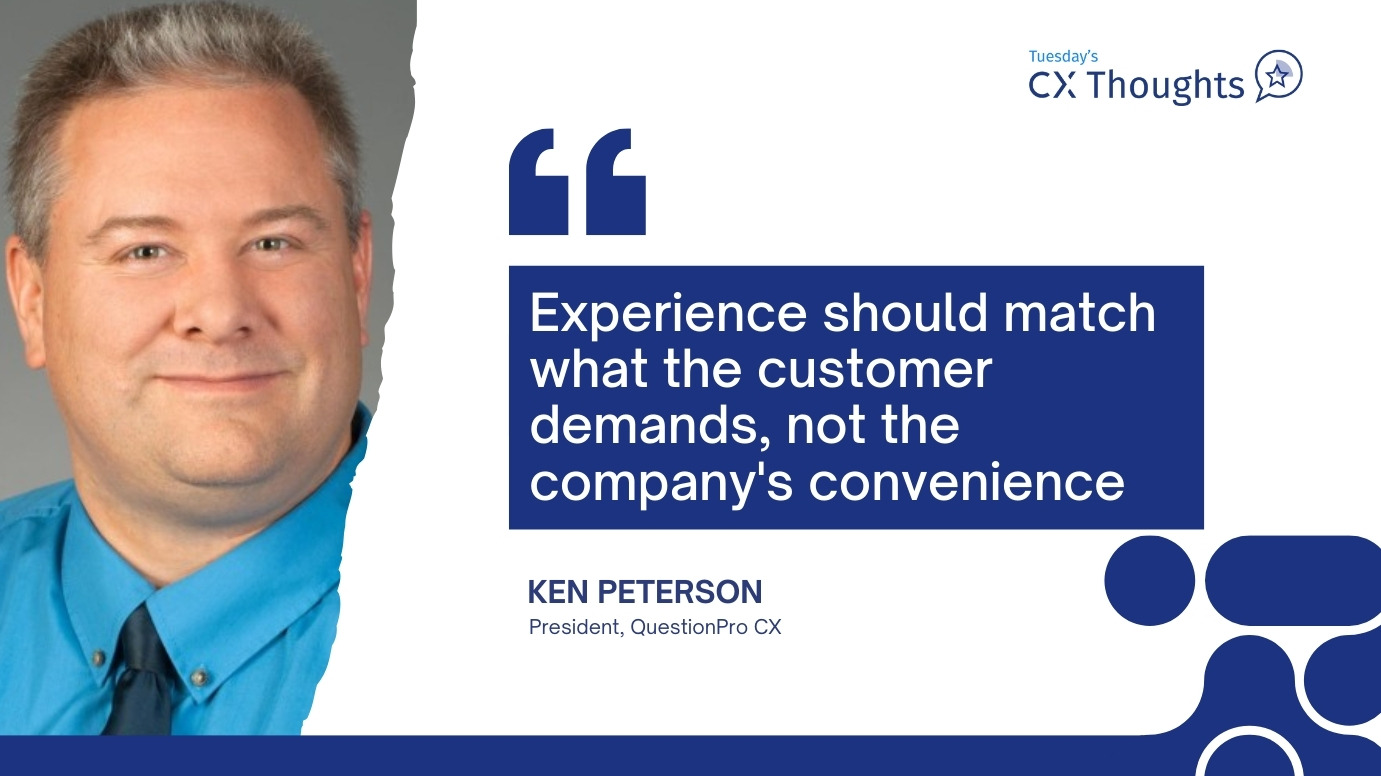
Making decisions in real-time is essential so you don’t miss out on good chances. Most of these decisions are based on an organization’s growing data. Businesses miss opportunities because business users can’t get the data and insights they need, which leads to data democratization.
To “democratize” data, you must do much more than making it available. In a data-driven economy, you need a good plan to get your business up and running quickly.
Data democratization is not just giving people access to data, whether raw data in a data warehouse or pretty visualizations in a tool for product analytics or business intelligence.
This blog will explain what data democratization is and what its strategic principles are.
What is data democratization?
Data democratization is a procedure that makes data available to everyone in a company without requiring extensive IT participation. It was developed in response to the requirement to maximize the value of big data.
With a data democratization plan in place, every user in the business may access data for quicker and wiser decision-making. As a result, analysts can spend more time using data rather than searching for it. Several technical, cultural, and governance barriers may prevent a company from providing all employees with unrestricted data access.
We need to provide individuals with simple access to the data so they may utilize it to improve decision-making and identify possibilities for an organization. The objective is for everyone to use data at any moment to make choices without comprehension or access constraints.
Benefits of data democratization
Organizations that understand and successfully address the dangers highlighted will more clearly see the benefits of data democratization. Here are some benefits of it:

- Better decision-making: By capitalizing on current trends and customer demands, businesses may profit from a first-to-market position. All workers can access the data, enabling the company to reach consistent and coordinated conclusions.
- Empowering employees: With data access, groups and individuals may tackle business issues with more assurance. Making data usable takes up almost half of the work data scientists are responsible for. Internal process optimization may save time and effort by refocusing data teams on more strategic endeavors.
- Increased data investment ROI: You will make the most of every data point you invest in if you equip everyone in your organization to use data for making educated decisions.
- Improved consumer insights: The market and consumers are well-documented in external data. Making more consumer-focused choices due to a better understanding of this data can increase your market share and result in better customer experiences.
- Extraordinary adaptability: The data will vary to reflect market or customer changes. After that, you can form preventative rather than reactionary decisions.
Strategic principles of data democratization
Principles of data democratization include:
- How do you make it easy for employees to ask questions about data?
- Data access, but what kind of data and where?
- Consider this a continuous process that may even call for a change in organizational culture.
Empowering technical and non-technical users with equal access to data is necessary for true data democratization. Consider focusing on these four strategies to begin your democratization journey:
Data discovery
If it’s easier to find data, it will take less time to go from having an idea to doing something about it. It should be simple for users to seek access to data from throughout the business. Additionally, everyone should be able to see the table names and relevant content.
Diverse users may find data more efficiently with a current database that includes a Google-like search, simple filters, and a data profile.
Data exploration
Users may start answering questions utilizing data by themselves with code-based and no-code tools for data exploration. This relieves data scientists and engineers of essential data investigation and reporting responsibilities.
Data experimentation
Only engineers and data scientists can employ the most cutting-edge data technologies. But what if they were accessible to data beginners? Business users may play with data and generate fresh insights and concepts by giving them access to the newest data superpowers.
Data automation
By eliminating human data labor, data automation in market research may make data simpler for everyone. Organizations should provide teams with the tools to automate reporting procedures and eliminate monotonous manual work. AI bots may be employed to identify data or propose glossary words automatically.
LEARN ABOUT: Data Management vs Data Governance
Conclusion:
Data democratization challenges are primarily complicated by team and employee behaviors, which may be assessed in the context of organizational culture. Furthermore, the management’s prior choices and methods often result in this circumstance. Sometimes, teams are set up separately.
Because data literacy is a prerequisite for data democracy, which is a continual process. Unprecedented growth is being seen in the data industry, and it’s remarkable, to say the least, how quickly tools and technologies are developing. But because of how it will affect their jobs, most individuals outside of the data arena will find it difficult to keep up with and a little frustrating.
Regarding improved data management, quicker insights, and lower research expenses, we at QuestionPro saw that our clients were increasingly in need of access to a consolidated user insights library. Join us as we go on a quest to put research data to use while reducing expenses and effort.
LEARN ABOUT: Customer data management







